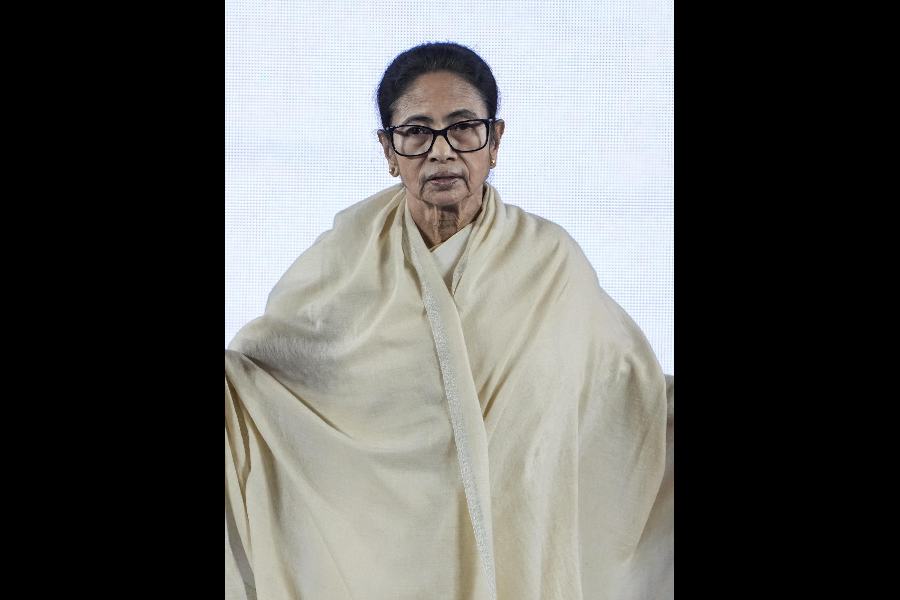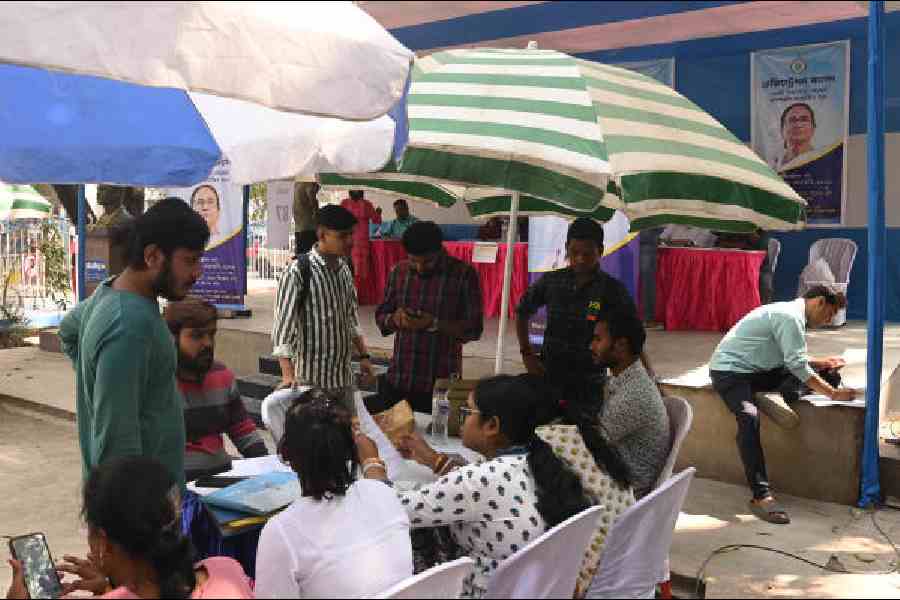
Guwahati, March 13: Lingi Leyong was only six when her parents were deported to China in 1963 in the wake of the Sino-Indian war.
Lingi, 57, a Chinese-origin Assamese who lives at Makum in Upper Assam's Tinsukia district, left for China this evening to meet her nonagenarian parents and other family members who live at Laibin in the country.
Her husband, a son, daughter-in-law, two grandchildren and a guide accompanied her.
Lingi's grandfather came to Makum to work for the tea industry that the British had just set up. There were many others who came from the then impoverished China, looking for jobs as carpenters and masons.
Most of them never returned home, married local girls and settled here. Among them was Lingi's grandfather.
When the Sino-Indian war broke out, the Indian government captured all the Chinese-origin people who had been living mostly in Upper Assam and forcefully deported them to China. By then, Lingi's grandfather had passed away.
Lingi's father, Leyong Kakhoi, had also married a local girl and was living at Kehang tea estate. The army captured Kakhoi, his wife and children and deported them to China. At the time, Lingi was in the house of her maternal grandmother at Borjan, around 10km from home.
So she was left behind, an example of how people suffer when two nations are at war.
Lingi's parents had added a common Assamese name - Pramila - to her Chinese name. She was known as Lingi Pramila Leyong at school. In the absence of her parents, Lingi lived with her grandmother's family, studied till Class III and later married Simon Das. At present, she is known as Pramila Das.
"After the incident, Lingi moved on with her life. But after 30 years, she got a letter from her father. I have read the letter where her father fondly recalled how Lingi had cleaned and warmed his shoes before he left for work. Lingi's parents had written many letters to her before that one. But they did not reach her. The letter was the beginning of their communication. Now they talk over the phone," said the Sahitya Akademi Award-winning writer Rita Choudhury.
Choudhury has captured the poignant episode of the Chinese-origin people in her novel, Makam.
Along with a Makum-based NGO, Surjudoy, Choudhury has arranged Lingi's reunion with her parents. The entire trip has cost Rs 7.5 lakh.
Part of the money has been collected from people as donation and the rest has been contributed by Choudhury from her own purse and borrowed from others.
"I asked my parents what I should take for them from Assam. My father asked me to take some bundia bhujia (a deep-fried snack) and articles that are very part of Assamese society like ghoti (a kind of pot), baanbati (bowl) and xorai. My mother has asked for articles like tejpaat (Malabar leaf), bhekuri tita (Indian nightshade), mosur daal, sira (flattened rice) and gamosa. I am taking them with me," said Lingi here with tears in her eyes. "I don't know what I will tell them when I will meet them. Maybe I will cry and cry," Lingi said.
From Lokpriya Gopinath Bordoloi International Airport here, Lingi left for Calcutta, from where she will leave for Hong Kong tonight. From Hong Kong, it will be a 10-hour trip by train to Laibin.
Akhil Chandra Barua, the director of Surjudoy, said the Chinese-origin people of Assam are yet to recover from the shock they had received during the Sino-Indian war.
"They are still apprehensive that they may also face the same fate their grandparents had faced," he said.
Barua said they were building a museum at Makum to showcase the culture of the Chinese-origin people. She appealed to the people, government and NGOs to come forward to help the Chinese-origin people so that they can see their family members at least once. "The Chinese-origin people are now very much a part of Assamese society. They never think of migrating to China. From the humanitarian point of view we can help them meet their loved ones once," she added.










